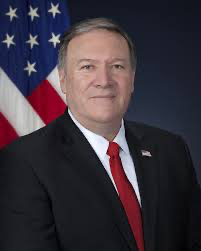BRASILIA/WASHINGTON, (Reuters) – U.S. Secretary of State Mike Pompeo warned yesterday the United States and Brazil need to reduce their dependence on imports from China for their own security as the two countries reinforced their business partnership.
At a virtual summit on increased U.S.-Brazil cooperation aimed at post-pandemic recovery, Pompeo underscored the importance of expanding bilateral economic ties, given what he called “enormous risk” stemming from China’s significant participation in their economies.
“To the extent we can find ways that we can increase the trade between our two countries, we can … decrease each of our two nations’ dependence for critical items” coming from China, he said.
“Each of our two peoples will be more secure, and each of our two nations will be far more prosperous, whether that’s two or five or 10 years from now,” he added.
The Trump administration is working to boost ties with Brazil and provide a counterweight to China, keen to gain some advantage in what it sees as a new ‘Great Power’ competition.
Brazilian far-right President Jair Bolsonaro is keen to follow suit but is hamstrung by China being Brazil’s largest trade partner, which buys much of its soy and iron ore.
Bolsonaro has yet to decide whether to ban Brazilian telecom companies from buying 5G equipment from China’s Huawei Technologies Co Ltd as wished by the U.S government.
At the summit organized by the U.S. Chamber of Commerce, Bolsonaro announced three agreements with the United States to ensure good business practices and stop corruption. He said the package will slash red tape and increase trade and investment.
“In the last year and a half, together with President Trump, we have elevated Brazil-U.S. relations to its best moment ever, and opened a new chapter in the relationship between the two largest economies and democracies in the hemisphere,” he said.
Pompeo said Brazil was getting closer to joining the Organization for Economic Co-operation and Development (OECD) grouping rich nations with the support of the United States.
“We want this to happen as quickly as we can,” he said.
The U.S. Export-Import Bank would back projects valued at $450 million in Brazil this year, while the U.S. Development Finance Corp had plans involving about $1 billion in projects there, he said.





